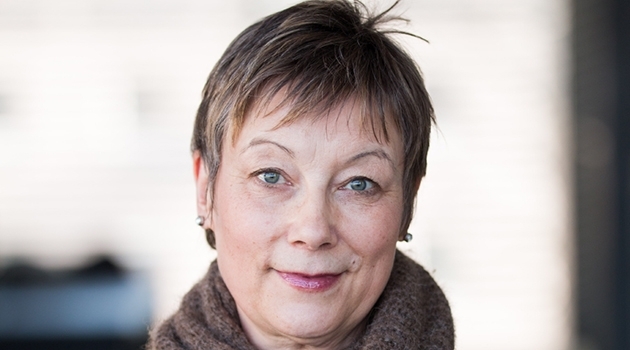Study of patient meetings will contribute to sustainable antibiotic-prescribing practices
By studying social and linguistic patterns in doctor-patient meetings, Anna Lindström, professor of language and social interaction, wants to lay the foundation for more sustainable antibiotic prescription practices in medical care.
Antibiotic resistance is one of the greatest challenges of modern medicine. The problem is accelerating due in part to misuse of antibiotics, which is entirely uncontrolled in some countries. Slowing this development requires interdisciplinary collaboration and in 2015, the Uppsala Antibiotic Center was launched, an initiative uniting researchers and doctoral students in all fields at Uppsala University. One of them is Anna Lindström, professor of language and social interaction.
“Uppsala University plays a major role in the development of potential antibiotics, but if medical care is unable to prescribe them optimally, then they won’t provide a long-term solution. That’s why we’re studying actual meetings between primary care staff and patients with respiratory infections, a context in which over-prescription of antibiotics has been demonstrated. We’re analysing how healthcare consumers present their expectations of a given treatment and how healthcare providers recommend or advise against certain types of treatments.”
The merging of the humanities and medicine has been successful. Anna Lindström concludes that the interdisciplinary discussion is already producing synergistic effects and via the Uppsala Antibiotic Center, she has launched a scholarly collaboration with Thomas Tängdén, chief physician of infectious diseases and researcher at Uppsala University.
“We’ve been very well received in this traditionally medical environment, both in academia and in primary care, where both staff and patients generously allow us to observe their meetings. So far, we’ve documented over 100 conversations and we recently presented our first findings at a conference in England, where they sparked significant interest,” says Anna Lindström.
Next up: exploring digital medical consultations
The analysis phase focuses on social and linguistic patterns in the patient encounter, as well as the strategies used by more experienced medical staff to avoid unnecessary antibiotic prescriptions. Ultimately, the findings will serve as a basis for developing an educational tool to further train doctors and nurses, and for use in Sweden’s medical schools.
“Care providers and patients in Sweden are quite knowledgeable about antibiotics, which contributes to relatively low levels of prescriptions. At the same time, there is room for improvement. For example, what arguments can the care provider offer if the treatment is not effective? And how do we create optimal terminology in guidelines for medical care? Antibiotic resistance is also a global challenge without protective boundaries, and hopefully our study will fill a knowledge gap in international research,” says Anna Lindström.
The intersection between sociology and language has no lack of medical questions to explore. The more relevant among them include the quickly growing phenomenon of digital medical consultations, where patient and primary care provider communicate via mobile phone or similar technology. There is still uncertainty about precisely what benefits are lost in the absence of a physical meeting. Nor has it been established who should be called in to a clinic to improve the probability of a correct diagnosis.
“Sweden is currently drawing international attention with our increased focus on short doctor visits that deal with one symptom at a time, and perhaps some reforms to medical guidelines should be preceded by clear reflection on the actual conditions of the meeting between clinicians and patients. This is why I want to continue emphasising clinic-based research, with continuous feedback to policymakers so that Sweden will continue to offer care of the highest quality moving forward.”
Fakta
Antibiotic prescription in Swedish primary care consultations
- Principal investigator: Anna Lindström. Uppsala University
- PhD student: Klara Bertils, Uppsala University
- Affiliated researchers: John Heritage, University of California, Los Angeles, Rebecca Barnes, University of Bristol and Thomas Tängdén, Uppsala University.
Uppsala Antibiotic Center (UAC)
Uppsala Antibiotic Center (UAC) was founded by the Vice-Chancellor in 2015 to bring together, stimulate and support research addressing important questions regarding antibiotic resistance from all three disciplinary domains at Uppsala University: Medicine and Pharmacy, Science and Technology and Humanities and Social sciences.

